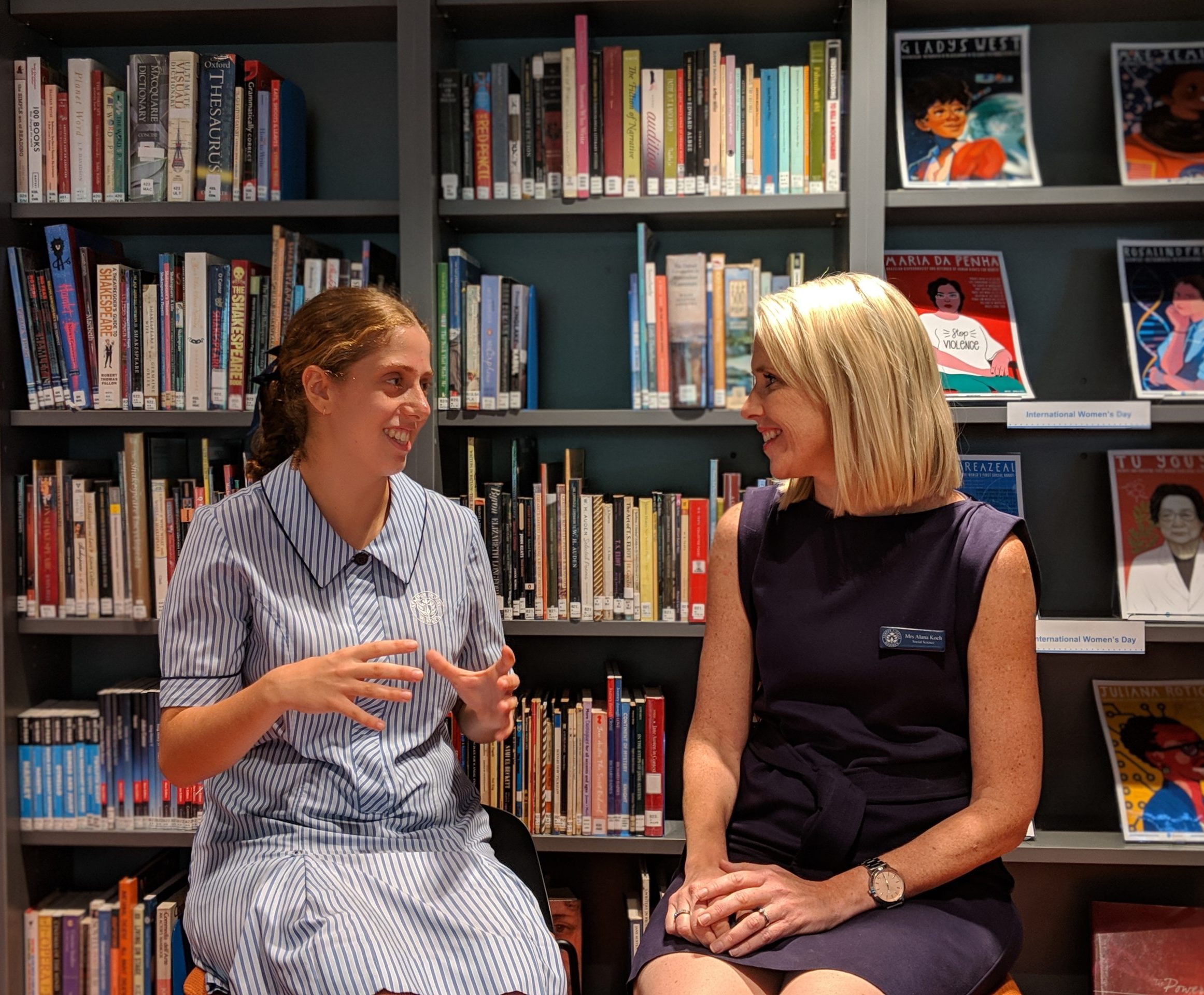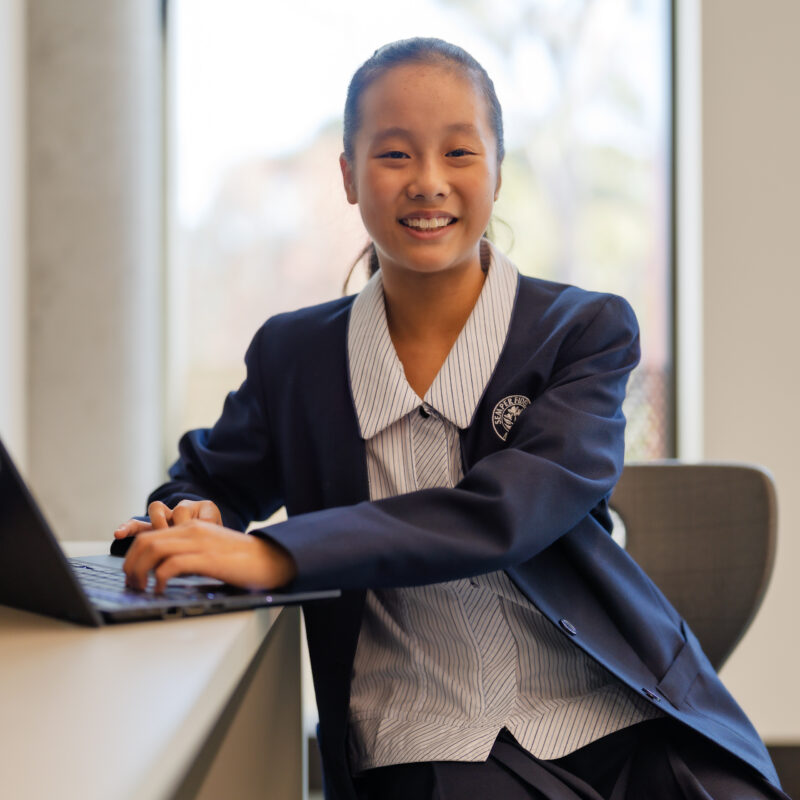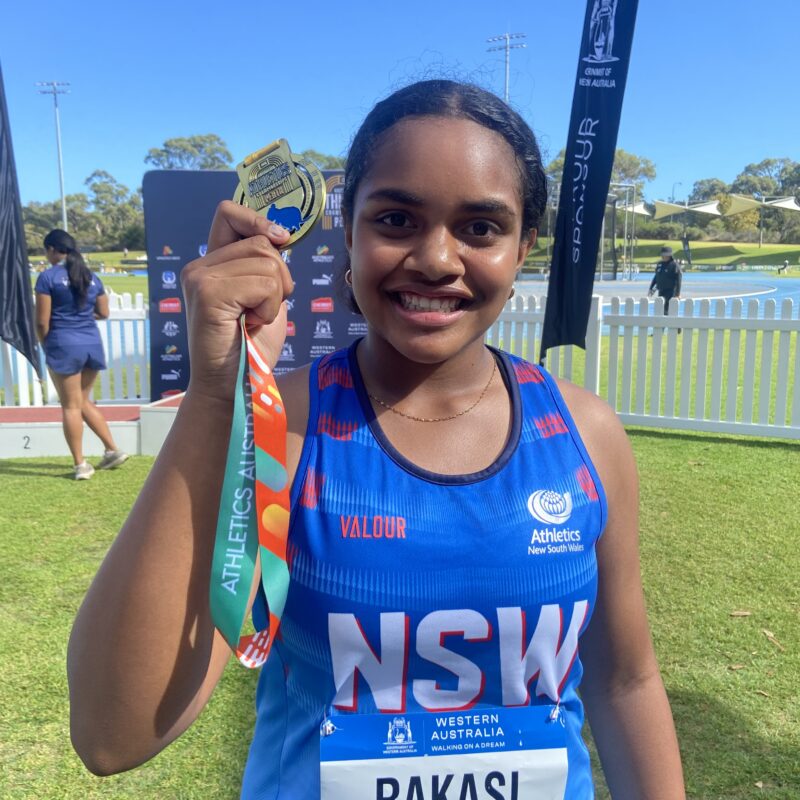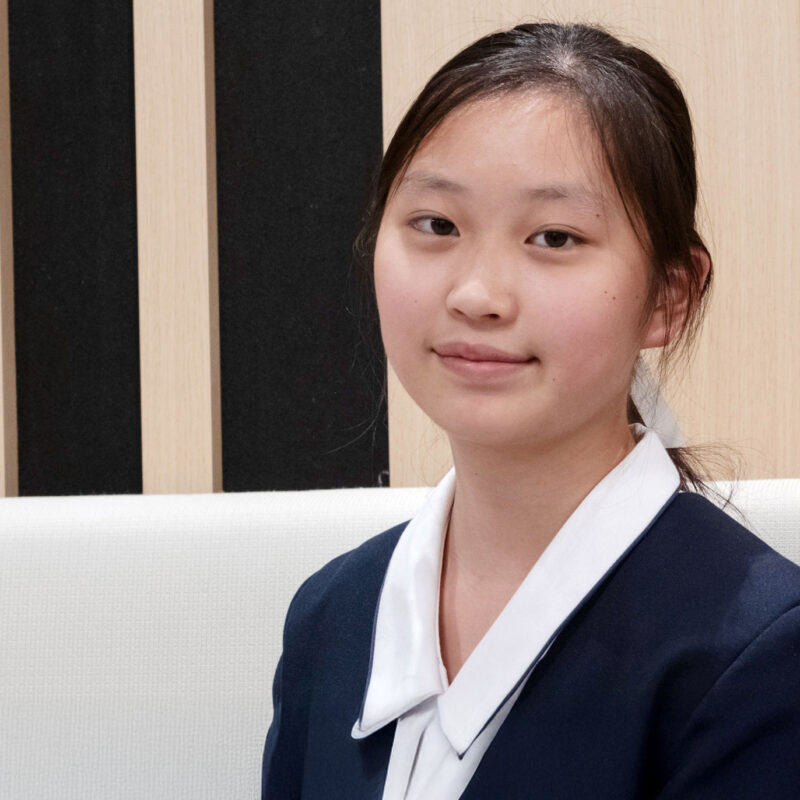Meriden has further enhanced its respected pastoral care delivery system, with the introduction of One-On-One Time. The program has been rolled out across the Senior School in 2019 and involves regular meetings between every student and their allocated tutor. It is supported by a purpose-built reporting system that ensures specialist staff can provide continuity of care for students in need of additional academic, social or emotional support.
Meriden’s Head of Senior School, Mrs Julia Anstey, said the program is part of the School’s commitment to continually build on best practice models for teaching, learning and pastoral care.
“Research has shown that school connectedness – that is, the extent to which students feel accepted, respected, included and supported in the school environment – plays a large role in determining positive mental health outcomes and academic success,” she said.
“As our school grows, we aim to continue to help our students feel that every one of them is an integral member of our community. We want them to know they have access to adults they can trust and who can provide guidance through challenges and will celebrate their successes.”
One-On-One Time is scheduled into the students’ timetables once every fortnight and each tutor supports a group of ten to twelve students, whom they connect with in individual discussions at least once per term. Tutors check in with students about their academic progress, their physical, mental and emotional health and anything else that is important in their lives. The information is recorded so student wellbeing can be tracked over time and recommendations for follow-up by key staff members can be made, including by the student’s Year Coordinator, Meriden’s Dean of Academic Care, Head of Teaching and Learning or the School Counsellor.
Ms Esther Seo, Science Teacher and tutor, said One-On-One Time allows teachers to get to know their students in a genuine manner.
“When you have discussions with large groups of students, it’s usually the outgoing students that you can get to know more easily, but this gives us a chance to see and hear from everyone – including the quieter girls – and get to know them better,” she said.
“Some of my students have problems with sleep, which we know has a big impact on their wellbeing and academic success; others are learning how to cope with the increasing responsibilities of schoolwork and cocurricular activities. I can see that as we build trust and help them make changes, the girls are visibly happier and able to learn more effectively.”
Mrs Alana Koch, Social Sciences Teacher and Lead Year 10 Tutor, said One-On-One Time sessions are about giving students an adult’s full attention and helping them to acquire important coping mechanisms.
“I believe the girls have improved in their ability to manage a variety of tasks, like negotiating difficult conversations with their teachers or their friends,” she said.
“Tutors don’t just give the girls advice, we try to workshop solutions that they come up with, so they’re learning how to think critically and strategically about addressing the issues they experience.”
Celeste Valiozis and Zenia Doong, both in Year 10, said the program has impacted their connectedness to Meriden and its teachers.
“I feel really grateful for how much the tutors care about me,” Celeste said.
“It’s nice to meet with the tutors because it’s personal and when I’m struggling with something and I don’t want to talk about it in front of the whole class, I know I can see my tutor and get good support.”
Zenia Doong agreed.
“One-On-One Time makes me feel like I’m special,” she said.
“The tutors know us so well that they can sometimes tell if we’re not okay before we even speak to them and they make a point of hearing about how we’re feeling and if we need help,” Zenia said.
Systematically fostering strong tutor-student connections helps ensure every student has a support network.
“The system puts emphasis on prevention, rather than intervention, so when tutors are having these conversations regularly across the school, we can see issues emerging before they become serious and we can address them before they become problematic,” Mrs Anstey said.
“I’ve noticed that there is real depth to the relationships the tutors have with girls they’ve met for multiple One-On-One Time sessions; they’ve gotten to know the whole student, beyond individual subject areas.”



